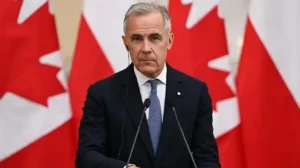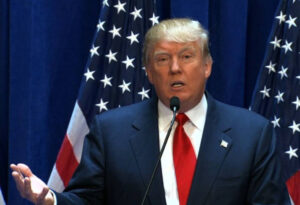Canada Seeks Trade Diversification, Advances Talks with Mercosur Amid Push to Reduce U.S. Reliance

Ottawa, The Gulf Observer: Canada’s International Trade Minister Maninder Sidhu announced Thursday that Ottawa is actively exploring renewed trade negotiations with South America’s Mercosur bloc, as part of a broader strategy to diversify Canada’s trade portfolio and reduce economic dependence on the United States.
Speaking in an interview with Reuters, Minister Sidhu confirmed recent conversations with Brazilian Foreign Minister Mauro Vieira, noting that “there is appetite to carry out conversations around Mercosur.” The statement follows Brazilian President Luiz Inácio Lula da Silva’s comments in April, expressing interest in advancing trade talks with Canada.
Mercosur — comprising Brazil, Argentina, Paraguay, and Uruguay — has previously held negotiations with Canada toward a free trade agreement, though discussions had stalled in recent years. Ottawa’s renewed outreach signals a revived commitment to engaging with emerging markets and strengthening multilateral economic ties.
Prime Minister Mark Carney’s government remains engaged in ongoing trade discussions with U.S. President Donald Trump, aiming to finalize a bilateral agreement by August 1. The proposed deal is expected to address key tariff issues and offer Canadian businesses some relief amid ongoing economic uncertainty.
Nevertheless, Canada’s overreliance on the U.S. market — which accounted for over C$1 trillion (US$727 billion) in bilateral trade in 2024 — has prompted policymakers to seek alternative markets. “My job is to be out there opening doors,” said Sidhu, highlighting the need to increase competitiveness and reduce vulnerability to U.S.-imposed trade tariffs.
Sidhu emphasized that Canada is simultaneously pursuing dialogue with other major economies, including China and India. While acknowledging ongoing trade challenges with China, he stated that “frank discussions” are underway to address tariffs on key exports such as canola, beef, and pet food. On India, he expressed optimism, noting that improved diplomatic relations could help bolster trade volumes between the two countries.
Since taking office, Sidhu has signed a free trade agreement with Ecuador and an investment promotion pact with the United Arab Emirates. He also confirmed ongoing discussions with ASEAN member states, as well as bilateral talks with Indonesia and the Philippines, to expand trade across the Indo-Pacific.
Canada currently has 15 free trade agreements covering 51 countries, granting access to approximately 1.5 billion consumers. According to Sidhu, Ottawa intends to pursue additional agreements in the months ahead, though no specific targets have been disclosed.
The minister also pointed to national security interests, stating that Canada is looking to diversify defense procurements away from the United States. As part of this effort, Prime Minister Carney has pledged an additional C$9 billion in defense spending this year to meet NATO’s 2% GDP target. “We are working with the European Union and other partners around the world to help unlock some of those procurement opportunities in defense for our Canadian companies,” Sidhu added.
Canada’s export share to the U.S. dropped to 68% in May, down from a 75% monthly average last year — the lowest on record — reflecting a growing shift in Canadian trade priorities. While Minister Sidhu declined to elaborate on the specifics of a potential U.S.-Canada trade agreement, he reiterated that Ottawa would prioritize outcomes that benefit Canadian businesses and workers.


